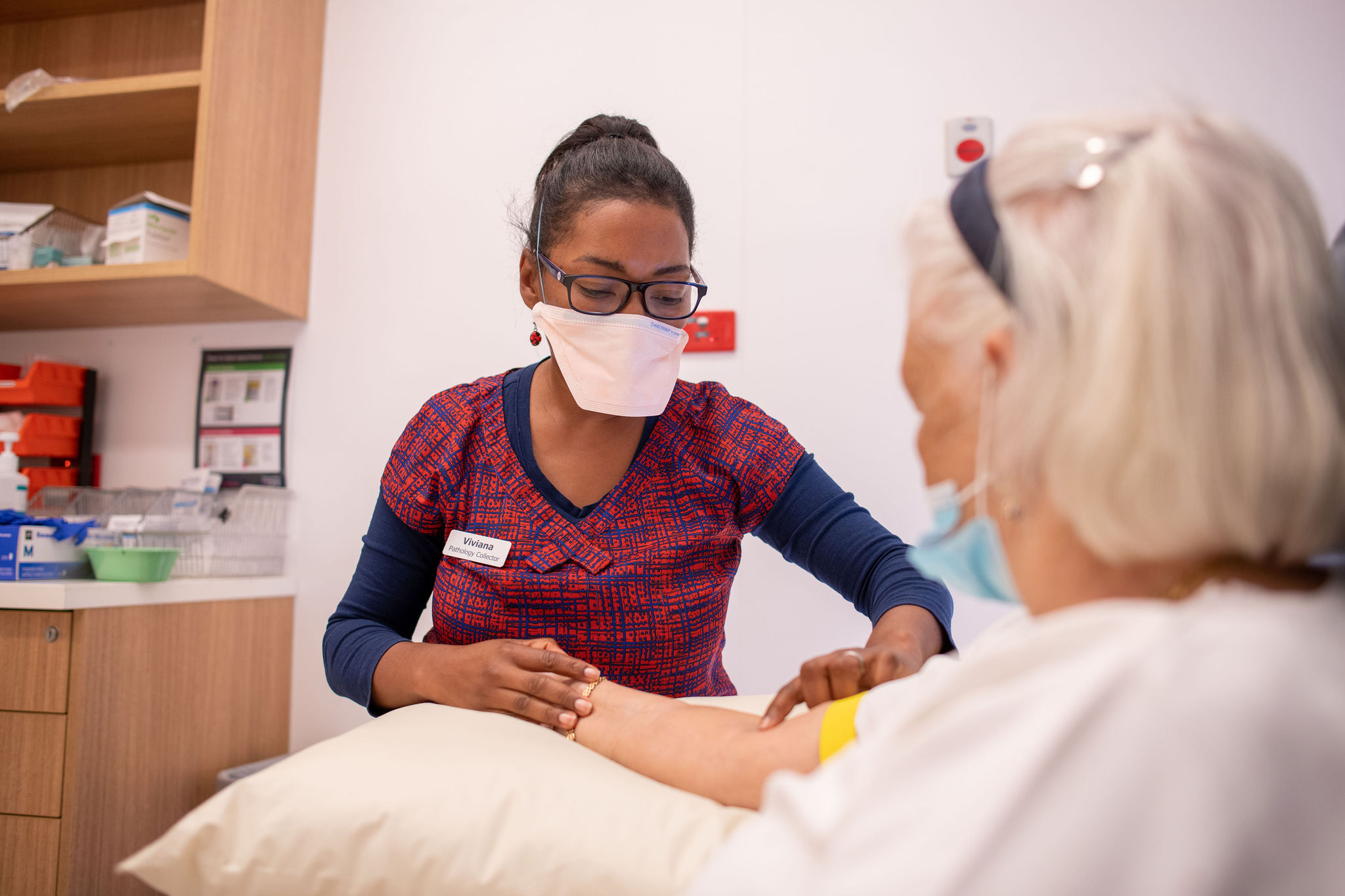A diagnosis of ‘Cancer of Unknown Primary’ CUP is made when a patient presents with metastatic disease for which no primary cancer can be identified despite extensive clinical assessment, imaging, and pathological evaluation. Currently, there is little information available to clinicians to help guide diagnostic, treatment, or supportive care practices for patients with CUP. SUPER is a cohort study that was initiated by a multidisciplinary research team to address the difficulties that both clinicians and patients face when dealing with a diagnosis of CUP.
Professor Linda Mileshkin is the clinical lead for the SUPER studies, and works closely with Dr Richard Tothill (genomics lead) from the University of Melbourne and Professor Penelope Schofield (behavioural science lead) from Peter MacCallum Cancer Centre and Swinburne University of Technology
SUPER established a ‘bio and information bank’ which is a national information resource of clinical, molecular, and patient questionnaire information that is currently being used to identify the supportive care and psychosocial needs of CUP patients, understand the clinical and molecular characteristics of CUP, as well as improving the diagnostic assessment of CUP patients.
We have manuscripts in preparation exploring patient experiences throughout their CUP diagnosis and treatment journey. We have identified differences in needs between patients residing in metropolitan versus rural/regional areas and compared the economic, quality of life and psychosocial needs of CUP patients to other patients diagnosed with advanced cancer of a known primary. Some of the work we have already presented/published is listed below.
SUPER recruited patients from 11 metropolitan sites nationally in Victoria, New South Wales, South Australia, Northern Territory and Australian Capital Territory and well exceeded the target recruitment of 300 participants. To our knowledge, we are the only translational, cross-disciplinary research group in Australia investigating CUP.
Primary objectives of SUPER
Demonstrate that WGS/WTS in CUP can assist diagnosis and provide evidence-based therapeutic leads superior to current targeted DNA panel testing
Demonstrate circulating tumour DNA from CUP patients facilitates rapid mutation testing
Secondary objectives
This project has two long-term objectives:
- To establish a biobank for analysis of CUP patient tumour and blood samples including establishment of organoid and patient-derived xenograft (PDX) models
- Describe the clinical characteristics and outcomes of CUP patients receiving genomic testing.
Sponsor
Peter MacCallum Cancer Centre
Funding
The project has received 4 sources of grant funding:
- ‘SUPER’ was funded by Cancer Australia. This study established a ‘biobank’ of 120 CUP patients, and 120 non-CUP patients which is a resource of clinical, molecular, and patient questionnaire information for future studies. The study is based in New South Wales, South Australia, and Melbourne Victoria.
- ‘SUPER plus’ is funded by the Victorian Cancer Agency. This study expanded SUPER by increasing patient numbers and expanding recruitment sites across regional Victoria. In addition, clinical questionnaires were included here to assess whether receiving timely molecular profiling results would alter patient management and treatment choice.
- ‘Recuperate’ is funded by Cancer Australia, and compliments ‘SUPER plus’ by expanding the study nationally to include Northern Territory and the Australia Capital Territory. In addition, Recuperate also is assessing the costs associated with a diagnosis of CUP.
- ‘SUPER-NEXT’ is funded by the MRFF (Medical Research Future Fund) Genomics Health Future Mission and extends the very sucessful SUPER study, bringing recent innovations in the use of whole genome (WGS) and whole transcriptome (WTS) sequencing to increase our sensitivity to detect therapeutic targets in CUP patients and help to correctly diagnose primary tissue of origin.
Principal investigator/s
SUPER - CIA: Prof Penelope Schofield, CIB: Prof David Bowtell, CIC: Prof Linda Mileshkin
SUPER plus - CIA: Prof Linda Mileshkin, CIB: Prof Penelope Schofield, CIC: Prof David Bowtell
Recuperate - CIA: Prof Linda Mileshkin, CIB: Prof David Bowtell; CIC: Prof Penelope Schofield
SUPER-NEXT – Co-le by A/Prof Richard Tothill, CProf Linda Mileshkin, Prof Penelope Schofield
SUPER Contact details
SUPER-NEXT Project Manager - Richard Rebello
- Email:
This email address is being protected from spambots. You need JavaScript enabled to view it.
Clinical Genomics Project Coordinator - Wendy Ip
- Email:
This email address is being protected from spambots. You need JavaScript enabled to view it.
Clinical Project Coordinator - Christine Dijkstra
- Phone: (03) 8559 8499
- Email:
This email address is being protected from spambots. You need JavaScript enabled to view it.
SUPER Project status
Closed for recruitment (SUPER-NEXT)
Related pages
Related studies
FAPI-CUP: a novel PET tracer for Cancer of Unknown Primary (CUP)
This is a prospective single arm cohort study designed to evaluate the diagnostic ability of 68Ga-FAPI-PET/CT scan in determining likely tissue of origin in Cancer of Unknown Primary (CUP) patients not identified by standard of care. Patients with CUP will be either treatment naïve or starting second-line treatment.

